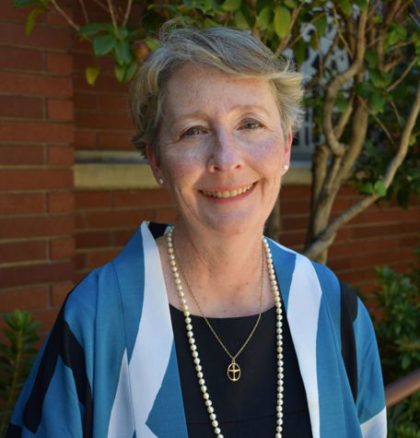 The federal policy of separating families – children from parents, income-earners from dependents – is not new.
The federal policy of separating families – children from parents, income-earners from dependents – is not new.
In June, it jumped into bold relief with the U.S. Department of Justice’s action to criminalize people for exercising their right to seek asylum, then incarcerate them without tracking where they and their children were sent. But detention, deportation and border fortification have divided families for years. Poverty drives workers away from their loved ones to find jobs across the border, after globally centralized agriculture and industry decimate local economies. Violence in the streets and in homes sends women, children and sexual minorities running from threats that illegal drug cartels and corrupt government agencies enable, backed by arms from the U.S. When people fear for their lives and see their children’s thriving thwarted, migration becomes necessary for survival. None of this is new.
During June I spent two weeks at the U.S.-Mexico border in San Diego and Tijuana in an intensive seminary class, studying border dynamics through the lens of theology. The experience made me wonder: How can we Unitarian Universalists keep believing in the worth and dignity of every person, let alone the possibility of a world community with peace, liberty and justice for all, in the face of such destruction of lives and souls?
Or, in the words that Sojourner Truth, according to legend, spoke to Frederick Douglass when he declared that the end of slavery could not come without war: Is God dead?
The only way to justify our UU beliefs against this reality is to enact them in ways that are felt in the halls of power: through service, witness and advocacy.
Doing this can be costly. But, it’s worth the effort, because it works. It not only solves immediate problems, like getting people released from detention and unifying their families. It works to restore hope. When we humbly offer practical help to besieged families and communities, we see seeds of healing take root and grow even in harsh conditions. We shed light on places like detention prisons that prefer to operate unseen. We learn ways to hinder the systems that oppress masses of people through incarceration and unjust law enforcement.
Serving detainees and their families can be a powerful response to the policies of separation and harm.
Like the Underground Railroad in history, helping people threatened by the net of unjust enforcement lets them escape, weakens it, and reveals its workings in public. Accompanying immigrants to interviews and hearings, even if you are not a lawyer, raises the likelihood of a favorable result by showing community support, says the Rev. Deborah Lee, Executive Director of Interfaith Movement for Human Integrity. Sending money for detainees to make phone calls lets them advocate for themselves and their children. Bond money sets people free. Keeping up pressure to release detainees can hasten cancellation of an ICE contract. These actions make us better advocates, before Congress and the public.
These acts of compassion, justice and mercy show that God is alive. They keep the flame of UU values burning.
After I returned from the border, I joined an interfaith witness group at San Francisco’s federal immigration court, advocating release of an immigrant single mother of four who had been incarcerated for seven months in a prison 500+ miles from her home. Our hearts sank when the judge set a bond of $12,000, far more than the group had raised. But then, out of the blue, a group member offered, on the spot, to pay it. The mother could return to her family the following day.
This was a moment of grace.
Moments like this make a difference. They not only prove how compassion persists in the face of despair, but they bring a new story into public view, a story of people who do what it takes for all families and every person to prevail over obstacles and flourish.
To be true to our Unitarian Universalist faith we must live, witness, and share this story in solidarity and fellowship. We must be among the people who do what it takes. And we must tell our stories loudly, in the halls of Congress and everywhere they can be heard.
UUSJ offers the unique opportunity to share what we learn directly with lawmakers on Capitol Hill. Through in-person visits by UUSJ’s Advocacy Corps, and “Write Here! Write Now!” letter and postcard campaigns throughout the nation, we can disrupt the decisions and values that destroy life. We can tell stories that prove love is alive and can flourish if we let it.
To be true to our faith, we must make common cause, and act humbly as agents of grace, in every way we can.
The struggle continues!
Eleanor Piez
Master of Divinity Student
Pacific School of Religion in Berkeley, CA
Candidate for Unitarian Universalist ministry
————-
Eleanor Piez, a lifelong/third generation Unitarian Universalist, is a candidate for the UU ministry, completing her M.Div. degree at Pacific School of Religion in Berkeley. In 2016-17 she served as Intern Minister with the UU Church of Annapolis and the UU Legislative Ministry of MD. Her interests in ministry include magnifying Unitarian Universalism in the public square, the spirituality of social justice activism, and strengthening the interdependent web of nonviolent, creative relationship. Eleanor is the mother of two young adult daughters and currently resides in Richmond, CA. Eleanor will finish her degree December 2018.

